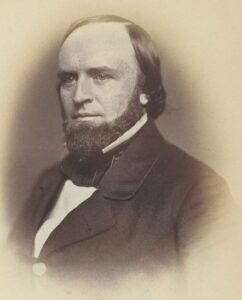
Aaron H. Cragin. Source: Library of Congress
The U.S. Senator from New Hampshire, Aaron Harrison Cragin, gave a speech on the floor of the Senate to argue for the prompt expansion of suffrage. He countered the statements by white Democrats, saying the real reason they were opposed to Black suffrage was because they could not control the votes. He notes that,
Democracy embrac[es] all the people in one common brotherhood of justice, humanity, and equal rights. The Democratic party long ago drifted away from its old landmarks, and has now become the advocate and apologist for slavery and aristocracy.
I charge the Democratic party with seeking to give undue political power to the rebel States by increasing their representation in Congress and their electoral votes for President; by attempting to make one white rebel in South Carolina equal to three white loyal men in New Hampshire. Such will be the result if the Reconstruction measures are defeated, and the Colored men not allowed to vote.
This was two years after the Thirteenth Amendment was ratified and less than six months before the ratification of the Fourteenth Amendment.
Here are more excerpts from the speech that can be read in full at Archive.org.
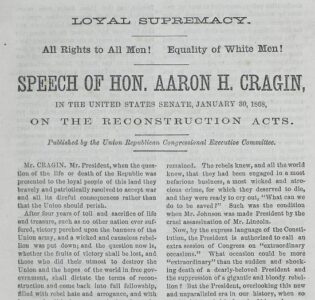 After four years of toil and sacrifice of life and treasure, such as no other nation ever suffered, victory perched upon the banners of the Union army, and a wicked and causeless rebellion was put down; and the question now is, whether the fruits of victory shall be lost, and those who did their utmost to destroy the Union and the hopes of the world in free government, shall dictate the terms of Reconstruction and come back into full fellowship, filled with rebel hate and arrogance, and with increased political power, or whether those who saved the Union shall rebuild it upon foundations cemented with the eternal principles of truth, justice, and equality.
After four years of toil and sacrifice of life and treasure, such as no other nation ever suffered, victory perched upon the banners of the Union army, and a wicked and causeless rebellion was put down; and the question now is, whether the fruits of victory shall be lost, and those who did their utmost to destroy the Union and the hopes of the world in free government, shall dictate the terms of Reconstruction and come back into full fellowship, filled with rebel hate and arrogance, and with increased political power, or whether those who saved the Union shall rebuild it upon foundations cemented with the eternal principles of truth, justice, and equality.
The former question is involved in, and must result from, the final success of the President’s “policy” and the plan of the Democratic party; the latter will surely follow the complete triumph of the congressional and Republican plan of Reconstruction . . .
The ballot was given to the Black man — first because he was a citizen and a free man, and as incident to and an inhering right of citizenship; but especially that he might have a weapon for self-protection and with which to insure the adoption of loyal democratic State governments. It was given for his own protection and the protection of those principles of union founded “in the just consent of the governed,” which the Declaration of Independence declares to be the original source of all government.
It is a well-known fact that after the passage of the Reconstruction acts the rebels expected to control the Negro vote, and went to work for that purpose. The Colored people were told that the rebels had always been their friends, and that they were then their best friends. They called them fellow-citizens, and admitted that they had been too long deprived of their rights.
They failed to control the Colored vote, and here is the rub. The Negro was too intelligent, loved liberty too well, to be used by those who for years held him in cruel bondage, and who only released their grasp when they were compelled by superior force. The instinct of that moral nature bestowed upon all men, and which is the linger of God, guiding the human heart, pointed them in the way of sure deliverance.
But, sir, I say again, here is the rub! If they had voted as the rebels wished to have them, we should never have heard a word about ”Negro supremacy.” And the Senator from Wisconsin would have hailed them to-day as “friends” and “fellow-citizens.”
We must, in order to be free ourselves, agree never hereafter to interfere with the freedom of others. We must, in order to assure our own return to liberty and happiness, not only recognize the Colored citizens of the South as now free, but we must allow them the same means of preserving their freedom that we ourselves desire to possess. They must be freemen in fact as well as in name. We must consent to their being invested with the elective franchise.
[Note: We added the capitalization of Black, Negro, Colored, and Reconstruction.]Read our report on teaching Reconstruction and find related resources below, including an article on other significance events during 1868.

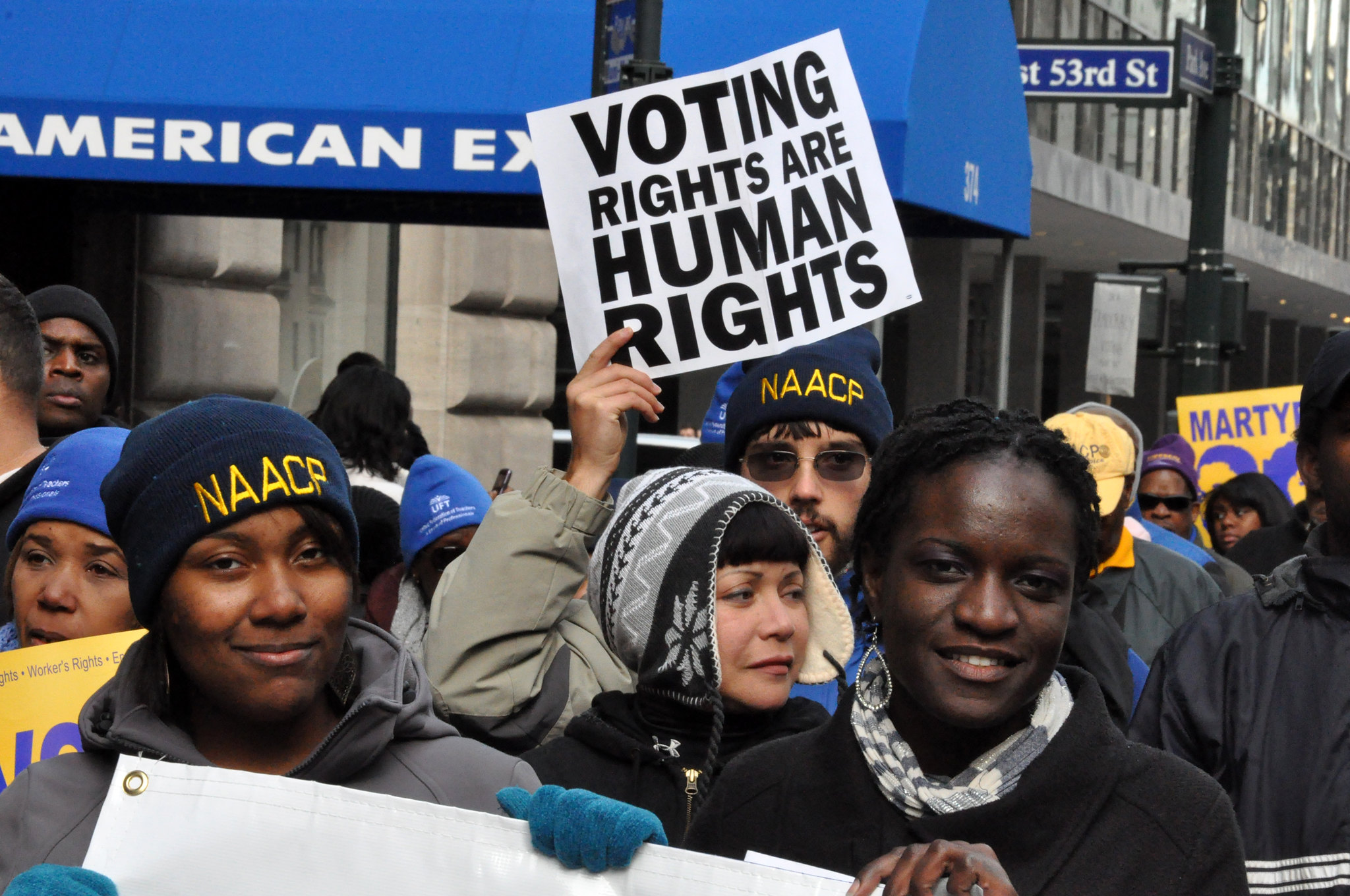
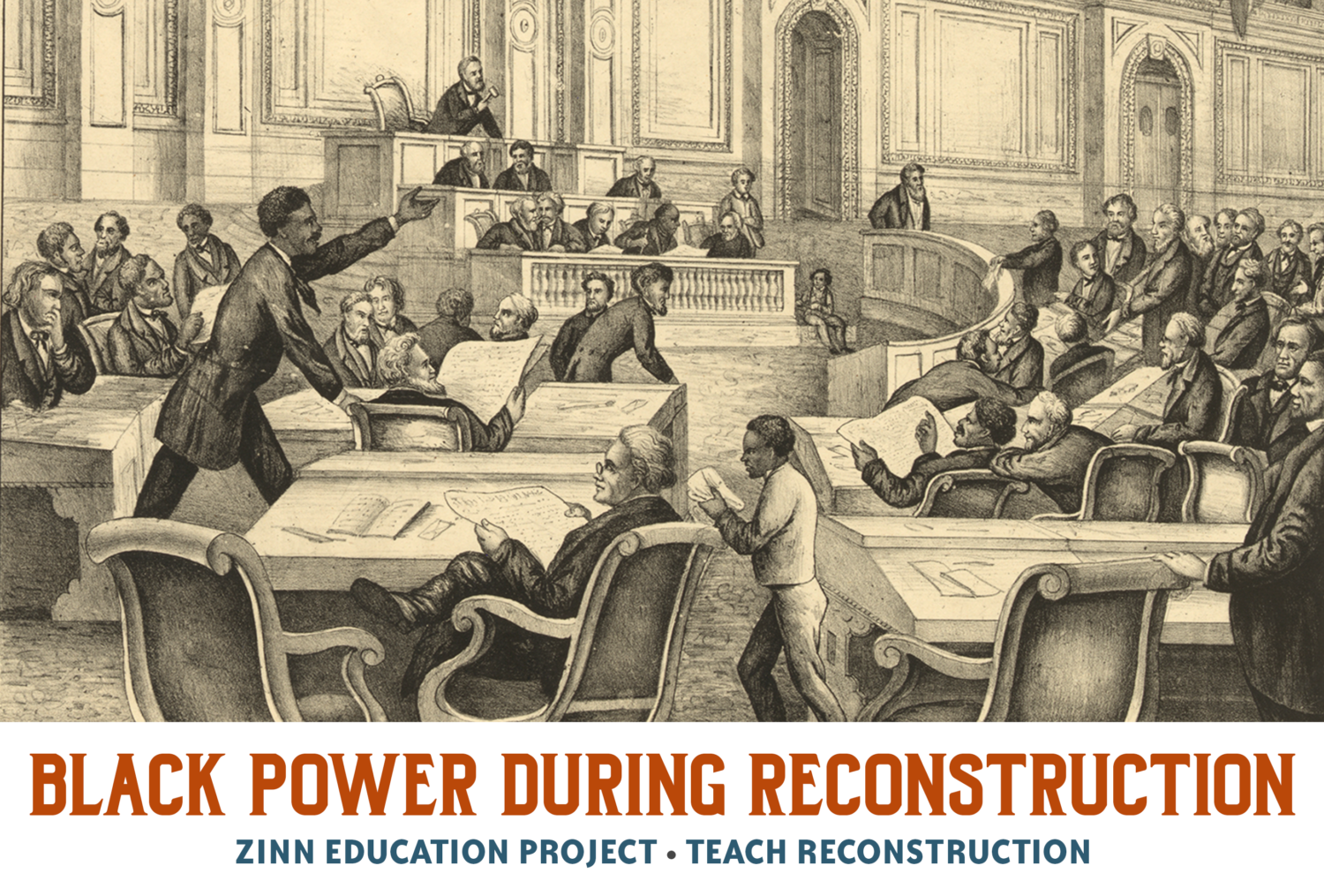
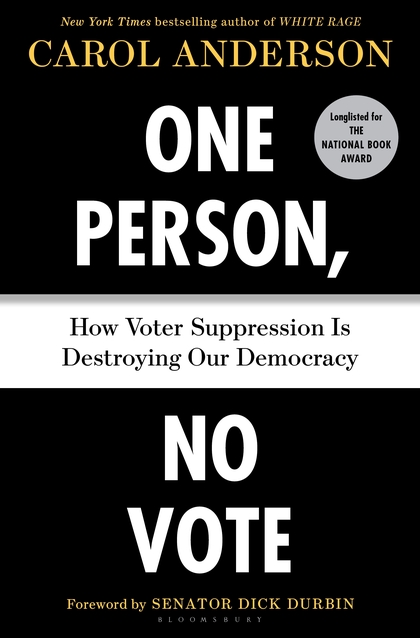
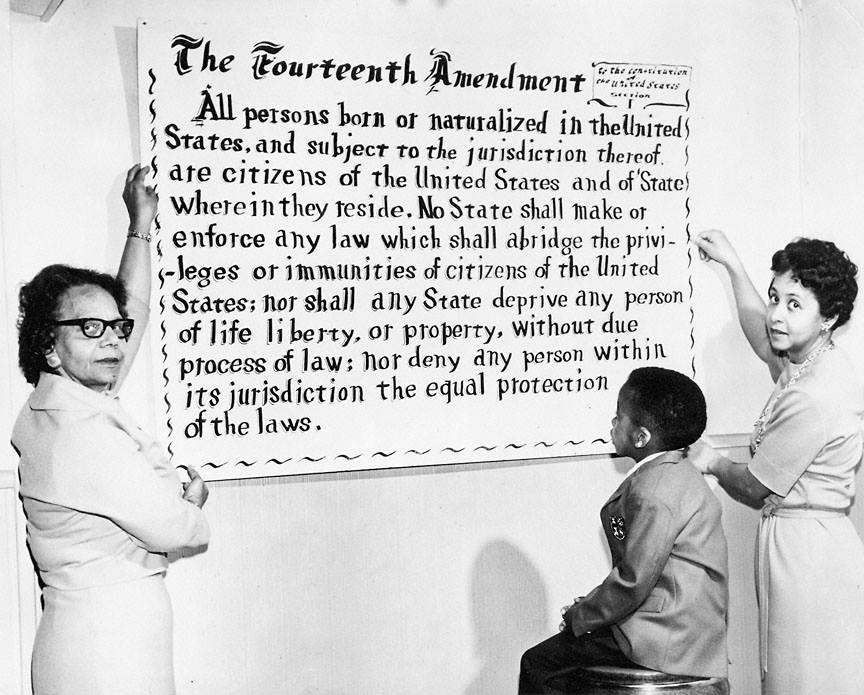
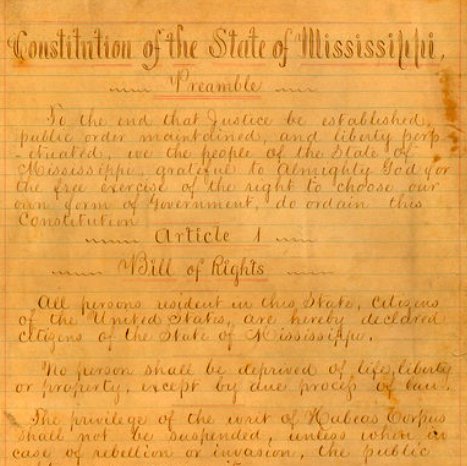
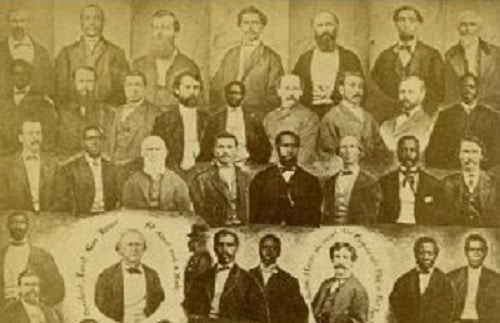
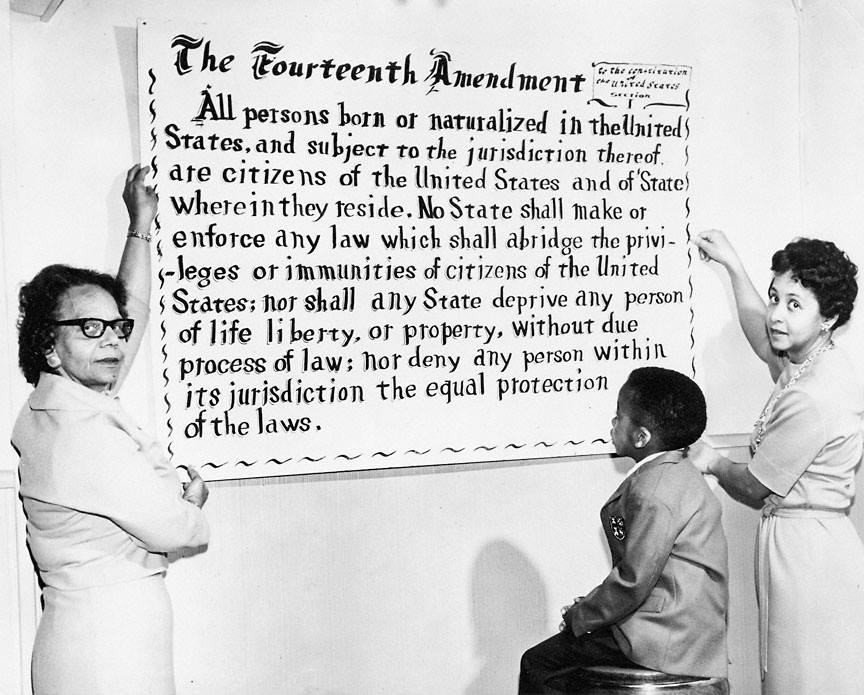
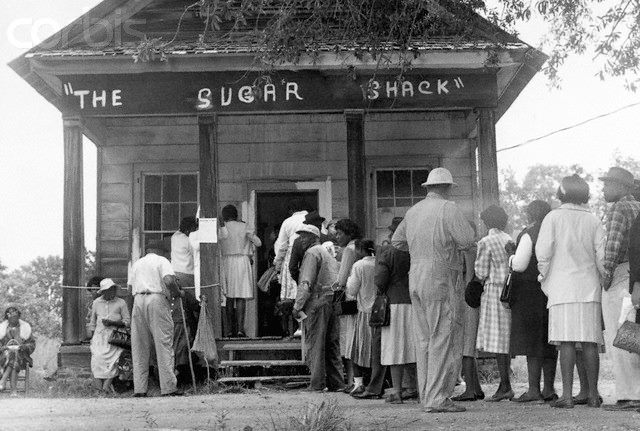
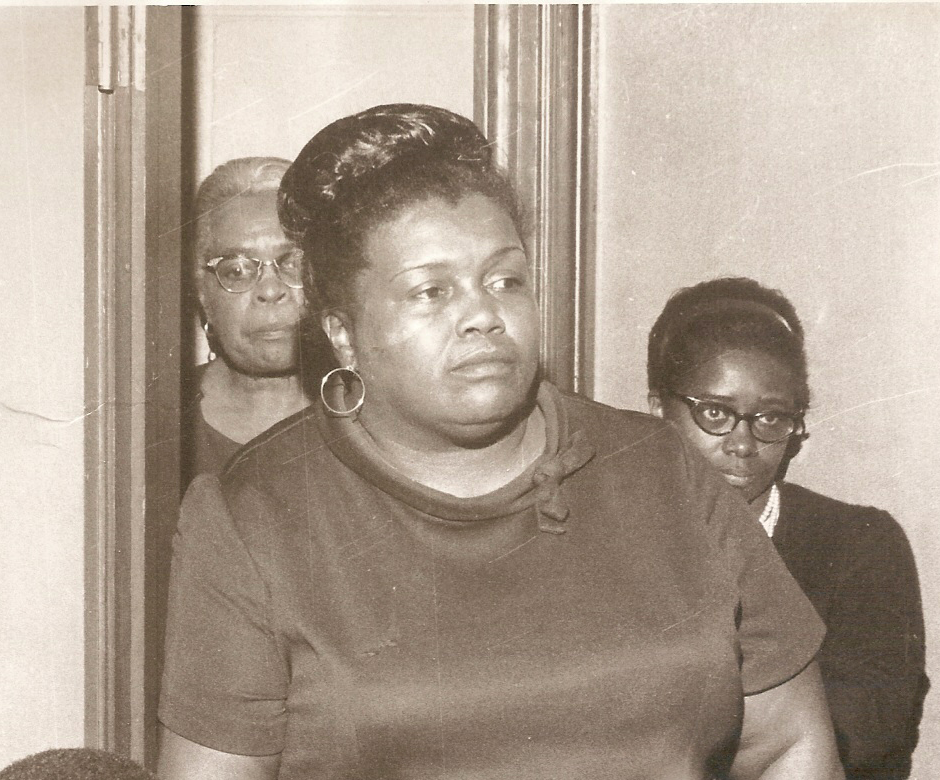





Twitter
Google plus
LinkedIn